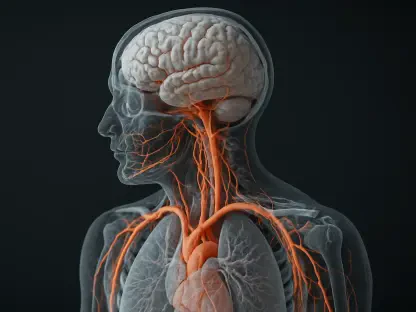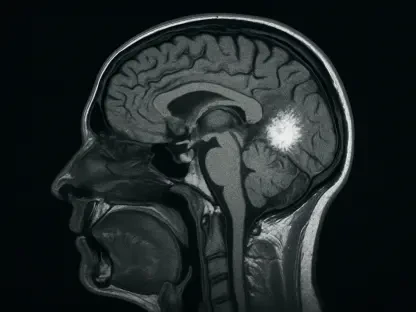In an era where technological advancements steadily shape the healthcare landscape, Microsoft’s AI tool, the MAI-DxO (AI Diagnostic Orchestrator), promises to redefine medical diagnostics. This cutting-edge technology claims superior accuracy over human physicians in analyzing complex medical cases, positioning the healthcare sector on the brink of transformation. The tool has demonstrated its revolutionary capability by diagnosing 85% of challenging cases from medical journals, starkly contrasting with seasoned physicians who achieved only 20% precision. Aside from accuracy, MAI-DxO is adept at predicting financial costs associated with requisite tests, addressing not only diagnostic concerns but economic aspects of healthcare as well. This approach underlines the potential of AI to minimize unnecessary expenses while enhancing diagnostic accuracy—crucial in healthcare systems criticized for excessive reliance on specialized care that can be disjointed. As Microsoft’s AI progresses, the promise of a pragmatic healthcare system gains momentum. The journey towards integrating AI into health services invites closer inspection and innovation.
Transforming Diagnostic Accuracy
Central to Microsoft’s AI breakthrough is its claim to outperform human physicians, achieving exemplary rates in diagnosing complex cases with significant precision. The comparisons between MAI-DxO and traditional diagnostic practices further highlight the vast potential for AI enhancement. Microsoft’s tool has decoded complex medical scenarios, surpassing conventional methodologies often constrained by human limitations. By capitalizing on vast data resources and computational prowess, the tool approaches diagnostics with rigorous attention to detail and reliable accuracy. Beyond identifying medical conditions, the AI system offers predictive insights into medical test costs, fostering more informed decision-making processes in clinical environments. As AI tools flourish, the potential for improved healthcare outcomes becomes increasingly evident, heralding a shift from fragmented systems towards cohesive medical processes. Microsoft’s innovation not only underscores AI capabilities but suggests a pathway to more efficient healthcare delivery, merging scientific accuracy with financial foresight to improve patient care.
Addressing Healthcare Costs and Utilization
Microsoft’s initiative with MAI-DxO doesn’t merely stop at diagnostic accuracy; it ventures into the realm of financial forecasting through predictive analysis of test expenses. This capability addresses the often-overlooked economic dimensions of healthcare by optimizing test usage and eliminating redundant practices. Undoubtedly, the challenge lies in navigating these financial intricacies without compromising patient care quality. With precise cost projections, healthcare providers can streamline operations, reshape budget allocations, and ensure a focus on value-based care. This strategic endeavor aligns with broader objectives of healthcare systems striving for efficiency amidst escalating medical costs. Using AI-driven insights for financial assessments can transform traditional models where cost considerations are secondary. By introducing fiscal responsibility alongside medical assessments, MAI-DxO aims to set an industry standard, emphasizing that accurate diagnoses are vital but equally significant is economic prudence. Balancing health economics with diagnostic excellence opens avenues for sustainable healthcare advancement.
The Path to Real-World Application
Despite the promising developments, MAI-DxO’s commercial availability faces rigorous evaluations for reliability, safety, and efficacy in varied medical settings. As technological ambitions extend forward, ensuring practical applicability across diverse healthcare landscapes remains paramount. Microsoft is engaged in thorough testing processes, scaling its AI tool to assess common health conditions. This holistic approach aims to navigate constraints faced by traditional methodologies favoring rote memorization over genuine comprehension and application. Through dynamic testing environments, this AI endeavors to mirror real-world medical scenarios, replicating practical challenges to refine its capabilities. The move towards real-life testing signifies an essential milestone for MAI-DxO, bridging theoretical excellence with actionable diagnostic precision. While the AI’s isolated success marks significant progress, its real-world efficacy demands persistent validation, scrutinizing performance amidst typical clinical workflows. Addressing these challenges through comprehensive assessments could facilitate a promising transition into everyday healthcare practice.
Future Prospects and Considerations
In a time when technology continually shapes healthcare, Microsoft’s MAI-DxO is poised to revolutionize medical diagnostics. This advanced AI claims to outperform human doctors in evaluating complex medical cases, marking a pivotal shift in healthcare. It has shown remarkable capability by accurately diagnosing 85% of tough cases from medical journals, compared to seasoned physicians who reached only 20% accuracy. Beyond precision, MAI-DxO can also anticipate the financial costs of necessary tests, tackling both diagnostics and the economic aspects of healthcare. This highlights AI’s potential to cut unnecessary expenses while boosting diagnostic accuracy—essential in healthcare systems often criticized for overly relying on fragmented specialized care. As Microsoft’s AI evolves, the prospect for a more efficient healthcare system strengthens. This journey towards integrating AI into healthcare calls for detailed examination and innovation, paving the way for more cohesive and cost-effective care solutions.









